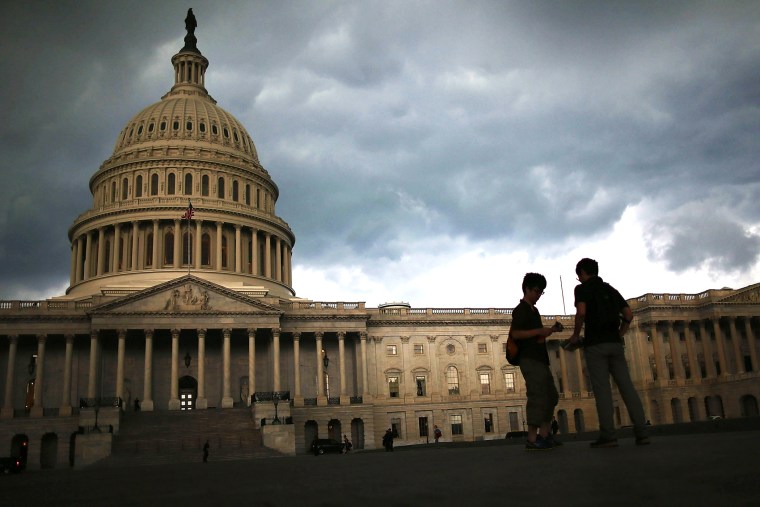In theory, polling on issues and legislation matters because it offers policymakers a guide to public attitudes. Elected officials in the United States have traditionally cared what the American people like and care about -- especially on life-or-death matters -- and the system was designed to make it difficult for woefully unpopular legislation to pass.
It should therefore matter -- again, in theory -- that the Republican health care plan is widely detested by much of the country, including many GOP voters, while the popularity of the Affordable Care Act reaches all-time highs.
Indeed, it's not just independent surveys. Sen. Chris Murphy (D-Conn.) noted the other day that his office received nearly 400 phone calls opposed to the GOP health care plan -- and literally zero in support of the proposal. The senator said he's "never seen anything like this." In my casual conversations with Hill staffers in recent days, I've heard nearly identical assessments: the GOP proposal is generating intense opposition, but it's inspired effectively zero activism from its supporters, who apparently exist in small numbers.
Unless someone is prepared to argue that Americans don't much count in the American political system, how exactly does someone justify ignoring public attitudes on an issue as important as health care?
Vox's Sarah Kliff attended an event last week and heard a candid remark from an unnamed Republican member of Congress.
"The way I look at is there is no question we're getting inundated with calls and emails and protests. There is all this energy and anger on the left. The people who lost are the ones who are angry. We won the entire elected government. So I remind my staff after a long day of hostile calls, it was less than six months we got more votes than a person on the other side in [my state]. The people who voted for me are still out there."
And in this American lawmaker's mind, those who didn't vote for him or her just aren't especially important.
If this perspective sounds at all familiar, it's because Donald Trump has explicitly endorsed it. At a White House press conference in March, the president acknowledged the progressive activists who've taken to the streets to condemn his agenda, but Trump dismissed their relevance.
"I mean, they fill up our rallies with people that you wonder how they get there," Trump said, referring to GOP lawmakers who received earfuls at town-hall events, "but they're not the Republican people that our representatives are representing."
In other words, "Republican people" count, and others don't. "Republican people" deserve to be represented on Capitol Hill, and everyone else deserves to be disregarded.
This isn't how politics is supposed to work in the United States, but it's apparently how some Republicans choose to approach their responsibilities in 2017.
